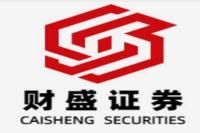Hong Kong Stock Market: A Deep Dive into Recent Performance and Future Prospects
Meta Description: This article delves into the recent performance of the Hang Seng Index and Hang Seng Tech Index, analyzing the factors driving their fluctuations. We explore the broader economic context, key industry trends, and potential implications for investors.
Introduction:
The Hong Kong stock market, a global financial hub, has long been a beacon for investors seeking opportunities in Asia. However, recent market movements have sparked concerns and raised questions about the future trajectory of the Hang Seng Index (HSI) and its tech-focused counterpart, the Hang Seng Tech Index (HSTECH). While the HSI initially opened with a modest decline, its downward trajectory quickly accelerated, reaching a drop of 1%. The HSTECH mirrored this trend, experiencing a decline exceeding 0.8%. This unsettling performance is not an isolated incident, reflecting broader economic anxieties and industry-specific challenges. This article aims to dissect the underlying factors driving these fluctuations, providing insights into the current state of the Hong Kong stock market and its potential future.
Understanding the Hang Seng Index (HSI): A Deep Dive
The Hang Seng Index, or HSI, is a market capitalization-weighted stock market index that tracks the performance of the top 50 listed companies on the Hong Kong Stock Exchange (HKEX). It serves as a vital benchmark for the Hong Kong stock market and a key indicator of the health of the broader Chinese economy. The HSI is designed to reflect the overall performance of large-cap companies that represent significant sectors of the Hong Kong economy.
Key Factors Influencing HSI Performance:
- Global Economic Outlook: The HSI's performance is intricately linked to the global economic landscape. Concerns about slowing global growth, rising inflation, and geopolitical tensions can negatively impact investor sentiment and lead to market volatility.
- China's Economic Growth: As a major trading partner and investor in Hong Kong, China's economic performance directly influences the HSI. Slowdowns in Chinese economic growth, particularly in key sectors like manufacturing and real estate, can weigh on the index.
- Interest Rate Policies: Monetary policies implemented by central banks, particularly the US Federal Reserve, can impact the HSI. Rising interest rates can attract capital away from emerging markets like Hong Kong, leading to downward pressure on the index.
- Hong Kong's Domestic Economy: The HSI is also influenced by Hong Kong's domestic economic performance. Factors like consumer spending, tourism, and property markets can impact the index.
- Industry-Specific Trends: The HSI comprises companies across various sectors, including finance, energy, technology, and consumer goods. Industry-specific trends, such as regulatory changes, competition, and technological advancements, can drive sector-specific performance and influence the overall index.
The Hang Seng Tech Index (HSTECH): A Focus on Innovation and Growth
The Hang Seng Tech Index, or HSTECH, is a sub-index of the HSI that tracks the performance of leading technology companies listed on the HKEX. It provides a specific gauge of the tech sector's performance within the Hong Kong market. This index includes some of China's most innovative tech giants, making it a valuable indicator of the country's technological advancements.
Factors Driving HSTECH Performance:
- Technological Innovation: The HSTECH reflects the rapid pace of innovation within the tech sector. Advancements in areas like artificial intelligence (AI), cloud computing, and e-commerce can drive growth and attract investor interest.
- Regulatory Landscape: The tech sector is subject to stringent regulations, particularly in China. Changes in regulatory policies, such as antitrust measures or data privacy regulations, can significantly impact the HSTECH.
- Geopolitical Tensions: The HSTECH is highly sensitive to geopolitical tensions, especially those related to technology and cybersecurity. Trade wars or sanctions can create uncertainty and volatility for tech companies.
- Investor Sentiment: The HSTECH is heavily influenced by investor sentiment regarding the tech sector's future growth prospects. Concerns about competition, profitability, or the potential for regulatory crackdowns can lead to market corrections.
Recent Challenges and Potential Opportunities
The recent performance of the HSI and HSTECH reflects a convergence of challenges, including:
- Global Economic Slowdown: Concerns about a global recession are dampening investor enthusiasm and driving risk aversion, leading to capital flight from emerging markets.
- China's Economic Slowdown: China's economic growth has slowed, fueled by factors like the ongoing property crisis, pandemic-related disruptions, and stringent COVID-19 policies.
- Geopolitical Tensions: The US-China trade war and heightened geopolitical tensions have created uncertainty for investors in the region.
- Regulatory Crackdowns: Regulatory scrutiny of China's tech sector, including antitrust measures and data privacy regulations, has increased, impacting investor confidence in tech companies.
Despite these challenges, there are potential opportunities for growth in the Hong Kong stock market:
- Government Support for Innovation: The Chinese government has pledged to support the development of key technologies and industries, creating opportunities for tech companies.
- Emerging Markets Growth: Despite the global slowdown, emerging markets like China and India are expected to continue growing, offering potential for investments in companies operating in these regions.
- Digitalization Trends: The ongoing trend toward digitalization across industries is creating opportunities for tech companies and could drive further growth in the HSTECH.
Key Takeaways and Investment Considerations:
- Market Volatility: The Hong Kong stock market is inherently volatile, influenced by a multitude of factors, including global economic conditions, China's economic performance, and regulatory changes.
- Long-Term Perspective: Investors should adopt a long-term perspective, considering the potential for growth in the Hong Kong market over time.
- Diversification: Diversifying investments across different sectors and asset classes can help mitigate risk and enhance returns.
- Thorough Research: Conduct thorough research on companies before investing, analyzing their financial performance, management teams, and industry prospects.
- Professional Guidance: Consider seeking advice from financial advisors to develop a personalized investment strategy based on your risk tolerance and financial goals.
FAQs
Q: What is the current state of the Hong Kong stock market?
A: The Hong Kong stock market has faced challenges recently, with the HSI and HSTECH experiencing declines. The market is currently navigating a complex landscape of global economic uncertainties, China's economic slowdown, and regulatory changes within the tech sector.
Q: What are the main factors driving the recent decline in the HSI and HSTECH?
A: The recent decline is attributed to a combination of factors, including global economic slowdown, China's economic slowdown, geopolitical tensions, and regulatory scrutiny of the tech sector.
Q: Are there any potential opportunities for growth in the Hong Kong stock market?
A: Despite the challenges, there are potential opportunities for growth, driven by government support for innovation, emerging markets growth, and the ongoing trend toward digitalization.
Q: What should investors consider when investing in the Hong Kong stock market?
A: Investors should consider factors like market volatility, long-term perspectives, diversification, thorough research, and seeking professional guidance.
Q: How can investors mitigate risk in the Hong Kong stock market?
A: Investors can mitigate risk by adopting a diversified investment strategy, conducting thorough research on companies, and seeking advice from financial advisors.
Conclusion
The Hong Kong stock market is a dynamic and complex ecosystem, influenced by a wide range of factors. While recent performance has been marked by volatility, the market presents both challenges and opportunities. Investors need to navigate this landscape with a clear understanding of the underlying drivers and potential risks involved. By adopting a long-term perspective, diversifying their portfolio, and conducting thorough research, investors can position themselves to capitalize on the growth potential of the Hong Kong market while mitigating risks.



